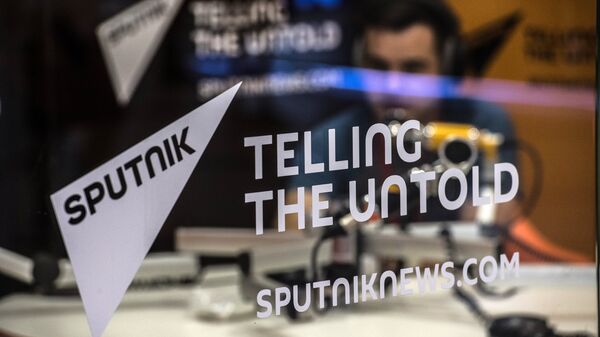"The idea of FARA is to have transparency over foreign agents operating in a lobbying capacity and in a public capacity in the United States. Many, many governments have that kind of required transparency, and in principle there’s nothing wrong with it, but when it’s used against journalists I think it has a spillover effect; it can undermine just RT, which might be the whole point, or Sputnik, which is probably the point of the registration, but it can undermine everybody’s trust in foreign journalism generally," he said.
The United States depriving RT of accreditation in the US Congress is counterproductive and allows Russia to impose analogous measures against US media, David Kaye told Sputnik.
Why Accusations Against Sputnik, RT an 'Insult to the Americans' Intelligence': https://t.co/ydys2VLKtO via @SputnikInt
— Rebel Soldier (@LibertarianSoul) 22 декабря 2017 г.
According to Kaye, the media bans in different institutions in the United States “allowed Russia to adopt similar measures against American journalists. They haven’t been implemented yet but that’s a possibility, it’s like an arms race, and it’s damaging, it’s more damaging than the initial harm.”
READ MORE: SNP Denies Media Reports About Boycott Against RT, Sputnik
“I want to ask both countries to really be cautious and to step back from imposing penalties and to think about whether there are other ways to address what they see as legitimate concerns,” the UN official added.
The UN Special Rapporteur on the promotion and protection of the right to freedom of opinion said that he was ready to discuss the Russian law on ‘foreign agent’ media with the Russian side, adding that he had not read it yet.


